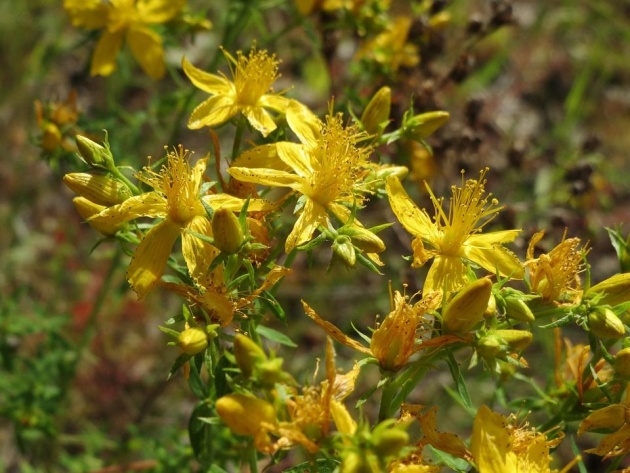 image source: www.pixabay.com
image source: www.pixabay.com
Hello, guys!
In this blog, I want to talk about one amazing herb called St. John's wort or using its scientific name Hypericum perforatum. It is extremely well-studied and known plant, for its multiple applications and is also a recommended treatment for various health conditions. As it is one of my favorite plants, I definitely want to try myself on this topic.
To start off, I want to provide some basic facts and information about the herb in the aspect of botany. St. John's wort is a plant that can reach up to 1 m in height and has bright yellow blossoms. It is widely spread across the globe, but for my country is not so common compared to other herbs. I'm always happy when I see its yellow-colored flowers during my visits to the countryside as they always remind me of its multiple health benefits. Herbalists usually know the exact location where the plants grow and collect their leaves and flowers on specific days during the spring and the summer. Other than the wild plants, there is pre-made tea, dried flowers or other products sold in the pharmacies or in the shops. Each one of them has its benefits and its specific use in various treatments.
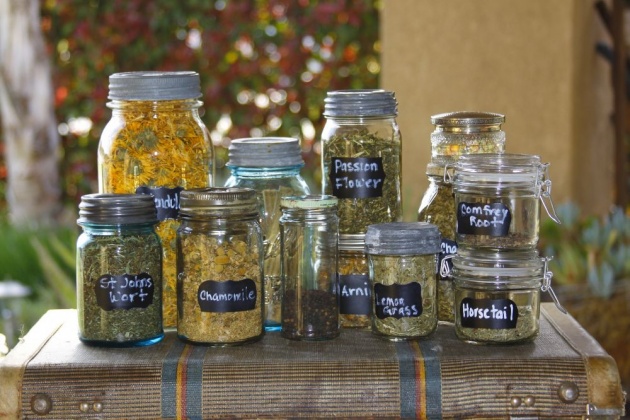 image source: www.google.com
image source: www.google.com
Hypericum perforatum, known as perforate St John's-wort, common Saint John's wort and St John's wort (/ˈsɪndʒənzwɜːrt/ sin-jənz-wurt), is a flowering plant in the family Hypericaceae. The common name "St John's wort" may be used to refer to any species of the genus Hypericum. Therefore, Hypericum perforatum is sometimes called "common St John's wort" or "perforate St John's wort" in order to differentiate it.
Some people believe this herb contains poisonous substances in little doses, and that it has a very strong effect on the entire organism. I think, that's actually good because through science it was proven that some types of poisons are actually healing is controlled small dosages. To count all of the possible usages of the plant would be probably impossible because even if it has been studied intensely, I don't believe many kinds of diseases are ultimately proven and tested with it yet. A fact is that the herb provoked the interest of the scientists. Let's see what are some of the conditions St. John's wort positively influences.
video source: www.youtube.com
Depression

image source: www.google.com
One of the most popular treatments of the plant is in cases of severe or slight depression, anxiety, panic disorder, fear, etc. It affects the nervous system by providing relaxation. Most of the psychical conditions can be improved by using this herb. It helps for a better mood, which effect is caused by producing the hormone serotonin. The trigger to all this are the flavonoids, contained in the herb. This effect is well-known and proven by science and also it can replace other medicines or be used for their production. In fact, using the herb is even better as it is a natural product and has very few side effects if any. In most cases, the best treatment is to drink tea made of St. John's wort and consume several cups per day.
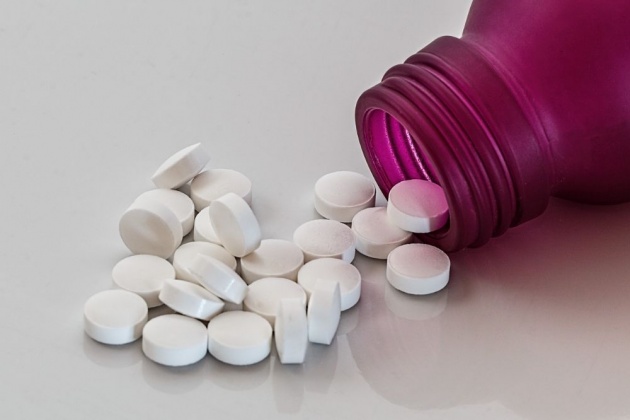 image source: www.pixabay.com
image source: www.pixabay.com
Insomnia
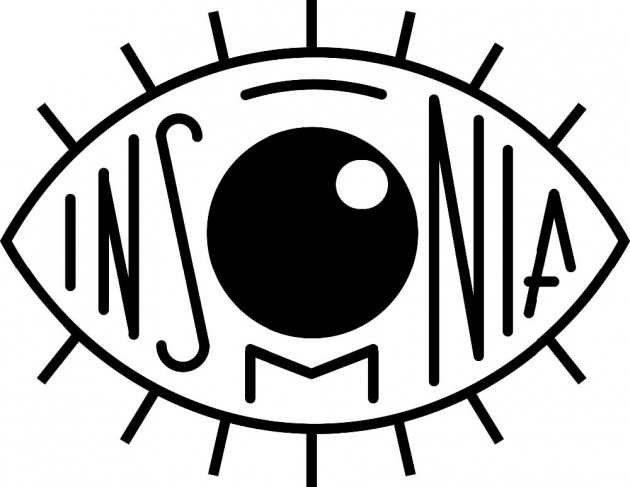
image source: www.google.com
The next use of the common St. John's wort is for fighting against sleeping issues. As it affects directly the brain, it is no wonder this herb can help in such cases. Besides using a tea and directly consuming the product, it can also be used as an essential oil. Since insomnia is sometimes really hard to cope with regular medicine and is not a condition requiring too strong medicine, like antibiotics, the herbal medicine is the perfect way to deal with it. I have a friend who successfully reduced the issues caused by insomnia by using the tea of St. John's wort.
Cold & Sore Throat
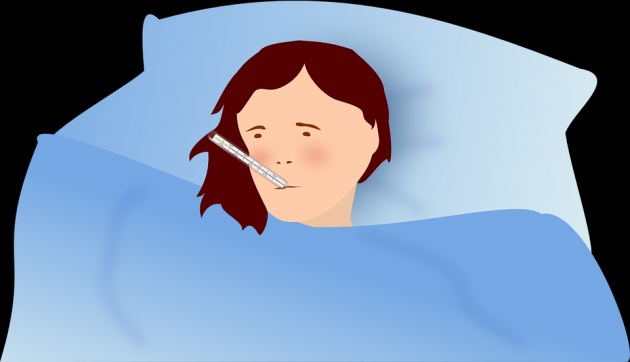 image source: www.pixabay.com
image source: www.pixabay.com
A sore throat can be effectively cured by using tea, in cases of cold, fever and similar. In those cases, it can replace the regular pills sold in pharmacies as it provides full recovery if taken for a week or more. It also helps for coughing, flu, and all kinds of diseases of this type. I think this usage is not that popular as the first two, but still, it's important to be mentioned as one of the conditions which can be healed by St. John's wort.
Headache

image source: www.google.com
As I mentioned, St. John's wort affects the brain and the bloodstream, which is the main cause of a headache. Due to the tannins that are part of its substances, the headache can be successfully eliminated. Since the reasons for a headache can be different, and this herb can interact with most of them, that leads to the effective treatment of this condition. I've personally used the herb for this particular reason and I can confirm it's indeed helpful.
Kidney Diseases
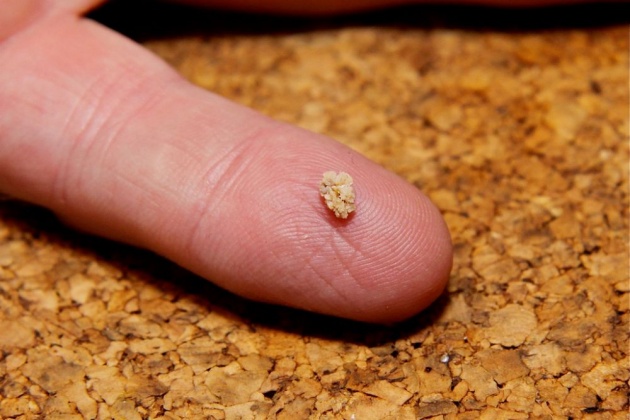 image source: www.google.com
image source: www.google.com
Various issues with the kidneys can be treated with the common St. John's wort. Some of them are removing kidney stones or crystals and purifying these organs. Of course, this should be combined with a proper diet according to the specific disease. The plant is useful for infection relief and prevention of potential future diseases. It is also one of the particular herbs which are proven to be helpful for healing bedwetting of children.
Skin Diseases
St. John's wort helps for acne, for clearing the pores and the tan of the skin, and many others. The reason it influences the condition of the skin is that the herb detoxicates the body and improves the bloodstream, thus makes the skin look better. It can be used internally (as a tea) or externally (for cosmetic procedures), but the best is using both of them. And besides all that, it can also heal open wounds and scars. This particular usage of the herb is well-known and practiced for many centuries.
The above-mentioned illnesses are not the only ones which the herb is used for. Other conditions are cancer, anemia, epilepsy, cystitis, vitiligo, addictions, menopause, muscle pain, psoriasis, weight loss, etc. They are too many even to count or mention them.
video source: www.youtube.com
Even though the usefulness of St. John's wort is unquestionable, in some cases people should be careful about the continuous usage of this treatment. It is a good idea to take breaks between the procedures with enough time for the body to absorb the substances and get used to the positive effect. Another thing which can be done for a better effect is to add honey to the tea, made of the herb, instead of sugar. The combination intensifies the favorable impact of both.
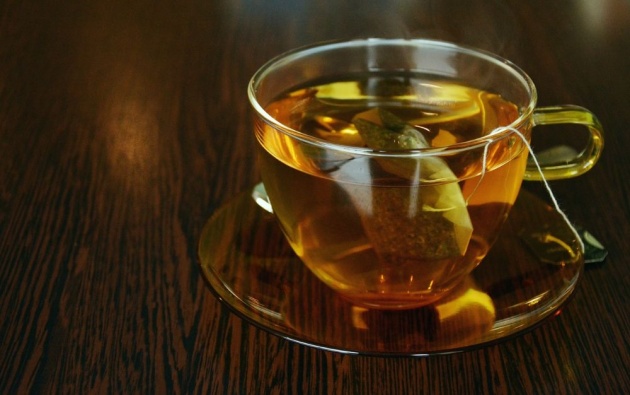 image source: www.pixabay.com
image source: www.pixabay.com
For most conditions, the tea prepared out of the herb is the best way to use it. However, it can also be used as an essential oil for lamps or baths. External application of the product should be used in addition to the other methods. It is recommended that for some treatments St. John's wort to be combined with other herbs in order to increase its positive impact. It is a good option to use it for prevention of potential diseases.
For me, St. John's wort is one of the best herbs that exist. It's one of my favorite for a long time now since its benefits are numerous. Ok, I'm leaving you now as I need to go and make some tea :)
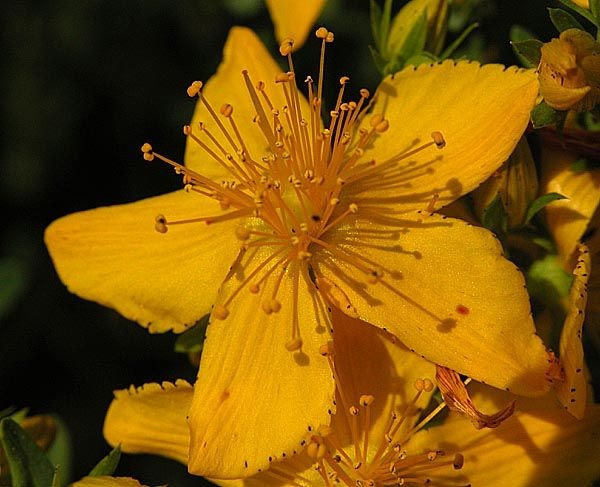 image source: www.google.com
image source: www.google.com
Thanks for reading!
- NinaB



